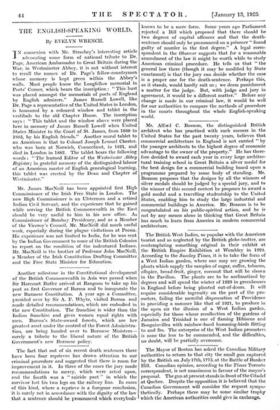The fact that out of six recent death sentences there
have been four reprieves has drawn attention to our criminal procedure and suggested that there is room for improvement in it. In three of the cases the jury made recommendations to mercy, which . were acted upon, and the fourth was a " suicide pact " in which the survivor lost his two legs on the railway line. In cases of this kind, where a reprieve is a foregone conclusion, it is surely not in accordance with the dignity of the law that a sentence should be pronounced which everybody knows to be a mere form. Some years ago Parliament rejected a Bill which proposed that there should be two degrees of capital offences and that the death- sentence should only be pronounced on a prisoner " found guilty of murder in the first degree." A legal corre- spondent in the Observer suggests that for a reasonable amendment of the law it might be worth while to study American criminal procedure. He tells us that " the general law there (though it may be modified by State enactment) is that the jury can decide whether the case is a proper one for the death-sentence. Perhaps this, as it stands, would hardly suit us ; we deem punishment a matter for the judge. But, with judge and jury in agreement, it would be a different matter." Before any change is made in our criminal law, it would be well for our authorities to compare the methods of procedure in the courts throughout the whole English-speaking world.














































 Previous page
Previous page